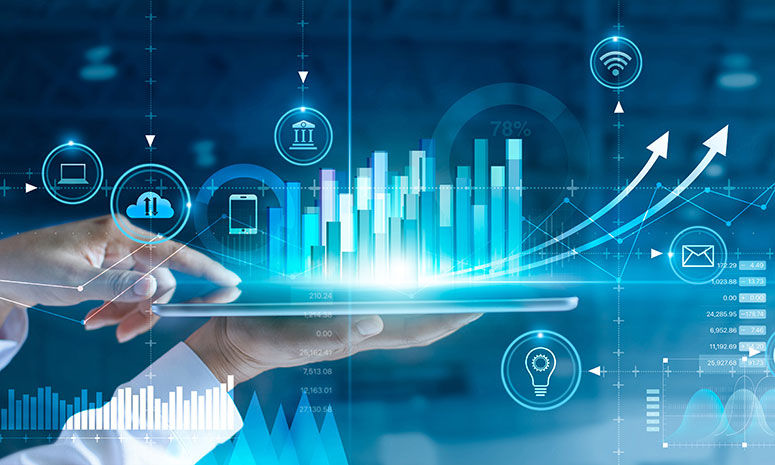The Surge of Data Science: Harnessing Data Power in Today's World
- Purva Yadav

- Jul 20, 2024
- 3 min read

Data science has become one of the most influential and dynamic fields of the 21st century, capable of transforming industries, fostering innovation, and addressing some of the world's most significant challenges. This blog delves into the fundamentals of data science, its applications, and its future potential.
What is Data Science?
Data science is an interdisciplinary field that merges statistical methods, mathematical models, and computer science techniques to extract knowledge and insights from both structured and unstructured data. At its core, data science involves:
Data Collection: Acquiring raw data from various sources.
Data Cleaning: Preparing and refining the data to ensure its quality and usability.
Data Analysis: Applying statistical and machine learning techniques to examine the data.
Data Visualization: Presenting data findings visually to enhance understanding.
Data Interpretation: Making sense of the data and providing actionable insights.
The Data Science Process
The data science process can be divided into several key steps:
Problem Definition: Clearly understanding and defining the problem to be solved.
Data Collection: Collecting pertinent information from several sources.
Data Preparation: To prepare the data for analysis, clean and arrange it.
Exploratory Data Analysis (EDA): Understanding the data and identifying patterns, trends, and relationships.
Model Building: Developing statistical or machine learning models to address the problem.
Model Evaluation: Evaluating the model's effectiveness with a range of metrics.
Deployment: Implementing the model in a real-world environment.
Monitoring and Maintenance: Keeping an eye on the model's performance and adjusting it as needed.
Applications of Data Science
Data science has a broad range of applications across different industries. Here are some notable examples:
Healthcare: By enabling personalized medication, forecasting disease outbreaks, and enhancing patient outcomes through predictive analytics, data science is completely changing the healthcare industry.
Finance: In the finance industry, data science is used for fraud detection, risk management, algorithmic trading, and personalized financial advice.
Retail: Retailers leverage data science to understand customer behavior, optimize inventory, and enhance the customer shopping experience through personalized recommendations.
Transportation: Data science helps in optimizing routes, predicting maintenance needs, and improving the overall efficiency of transportation systems.
Entertainment: Streaming services like Netflix and Spotify use data science to recommend content to users based on their preferences and behavior.
Marketing: Data science is essential for understanding consumer behavior, optimizing marketing campaigns, and increasing customer engagement through targeted advertising.
Sports: Teams use data science for performance analysis, injury prevention, and strategic decision-making.
Tools and Technologies in Data Science
Several tools and technologies are commonly used in data science, including:
Programming Languages: Python and R are the most popular programming languages for data science due to their extensive libraries and frameworks.
Data Manipulation Tools: Pandas and SQL are widely used for data manipulation and querying.
Statistical Analysis: Tools like NumPy, SciPy, and StatsModels are used for statistical analysis.
Machine Learning: Scikit-Learn, TensorFlow, and PyTorch are popular libraries for building machine learning models.
Data Visualization: Matplotlib, Seaborn, and Tableau are commonly used for data visualization.
Big Data Technologies: Apache Hadoop, Spark, and Hive are used for handling and processing large datasets.
The Future of Data Science
The future of data science looks promising as it continues to evolve and integrate with other cutting-edge technologies:
Artificial Intelligence (AI) and Machine Learning: The integration of AI and machine learning with data science will lead to more advanced predictive models and intelligent systems.
Internet of Things (IoT): The proliferation of IoT devices will generate massive amounts of data, providing new opportunities for data scientists to analyze and derive insights.
Blockchain: The use of blockchain technology will enhance data security and integrity, opening up new possibilities for data science applications.
Quantum Computing: Data science could undergo a revolution thanks to quantum computing, which can solve complicated issues that are currently unsolvable by conventional computers.
Ethical Data Science: As data science continues to grow, there will be an increasing focus on ethical considerations, including data privacy, bias, and transparency.
Conclusion
Data science is a transformative field that holds the key to unlocking the potential of data in today's world. It has a wide range of uses and a significant influence. As technology continues to advance, data science will play an even more critical role in shaping the future. By embracing data science, organizations and individuals can harness the power of data to drive innovation, make informed decisions, and solve complex challenges. For those looking to enter this dynamic field, enrolling in a Data Science course in Thane, Mumbai, Navi Mumbai, Delhi, Noida and other cities of India can provide the essential knowledge and skills needed to excel.



Comments